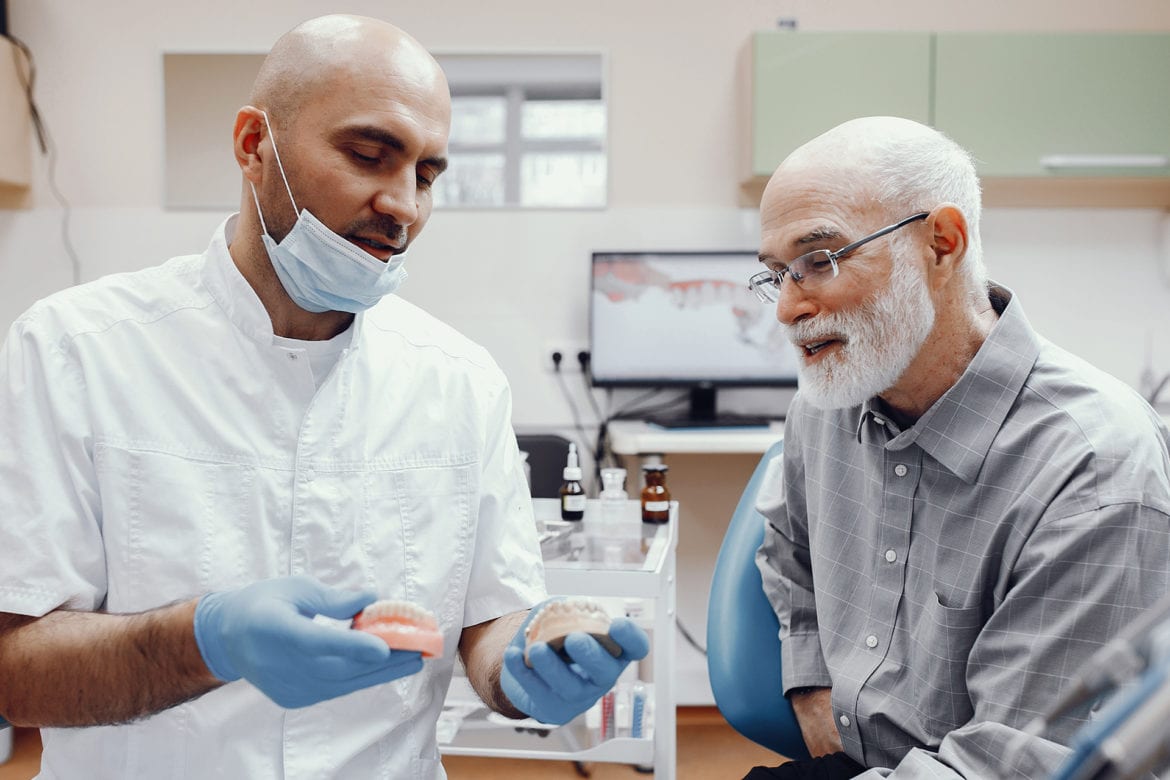If you have significant dental issues you may be a good candidate for dentures in the near future. When you are missing a couple of teeth you can get partial dentures to fill in the gap. They are typically held in place using clasps made of metal that attach to the teeth on either side of the device. Occasionally, your dentist may recommend that you connect them using a precision attachment that fits into a slot that was specifically created in the crown of your supporting tooth.
When your situation includes many missing teeth, you may find that you need to get a full set of dentures. Generally, you choose between conventional or immediate devices. If you go the conventional route you would start using your new artificial teeth a couple of months after your teeth are extracted. With the immediate option, the new dental devices can be created and applied after the last teeth are removed.
Adjusting to Your New Teeth
It’s normal to have a period of adjustment when you are getting used to your new dentures. In the beginning it might feel a little awkward and you will have to get used to eating and speaking with them. To help improve your speech it’s often helpful to practice reading passages out loud.
Slight irritation and a feeling of fullness or bulkiness in your mouth could also be present. As your mouth gets used to your new situation you may also produce more saliva. You will find that you quickly adjust and over time the irritation and other feelings should subside.
How to Hold Your Dentures in Place
To help insure a great fit with your dentures you will want to use a quality adhesive. The dental adhesive helps keep them in place as you talk or eat. It also creates a seal between your new teeth and your gums so that food doesn’t get trapped in that space. You only need to use a small amount of the adhesive.
Snap-in dentures give you improved stability and a sense of greater assurance. With this option, dental implants are set into the bone. Your dental device is then anchored to those set points and held in place securely during the day.
Practice Great Oral Hygiene
With your new set of teeth, you need to be sure to practice great oral hygiene. Every day, you should soak your device in an approved cleaning solution; follow the recommended length of time from the manufacturer. The devices should then be thoroughly rinsed and cleaned before use.
To keep bad breath and possible infections away, you should also use toothpaste and a soft-bristled brush to clean the inside of your mouth. Be sure to brush you tongue, cheeks, mouth and gums before putting your dentures in your mouth at the beginning of each day.
If you have a problem with missing teeth and want to restore your confidence and your smile, consider getting a partial or full set of dentures. With the right….

